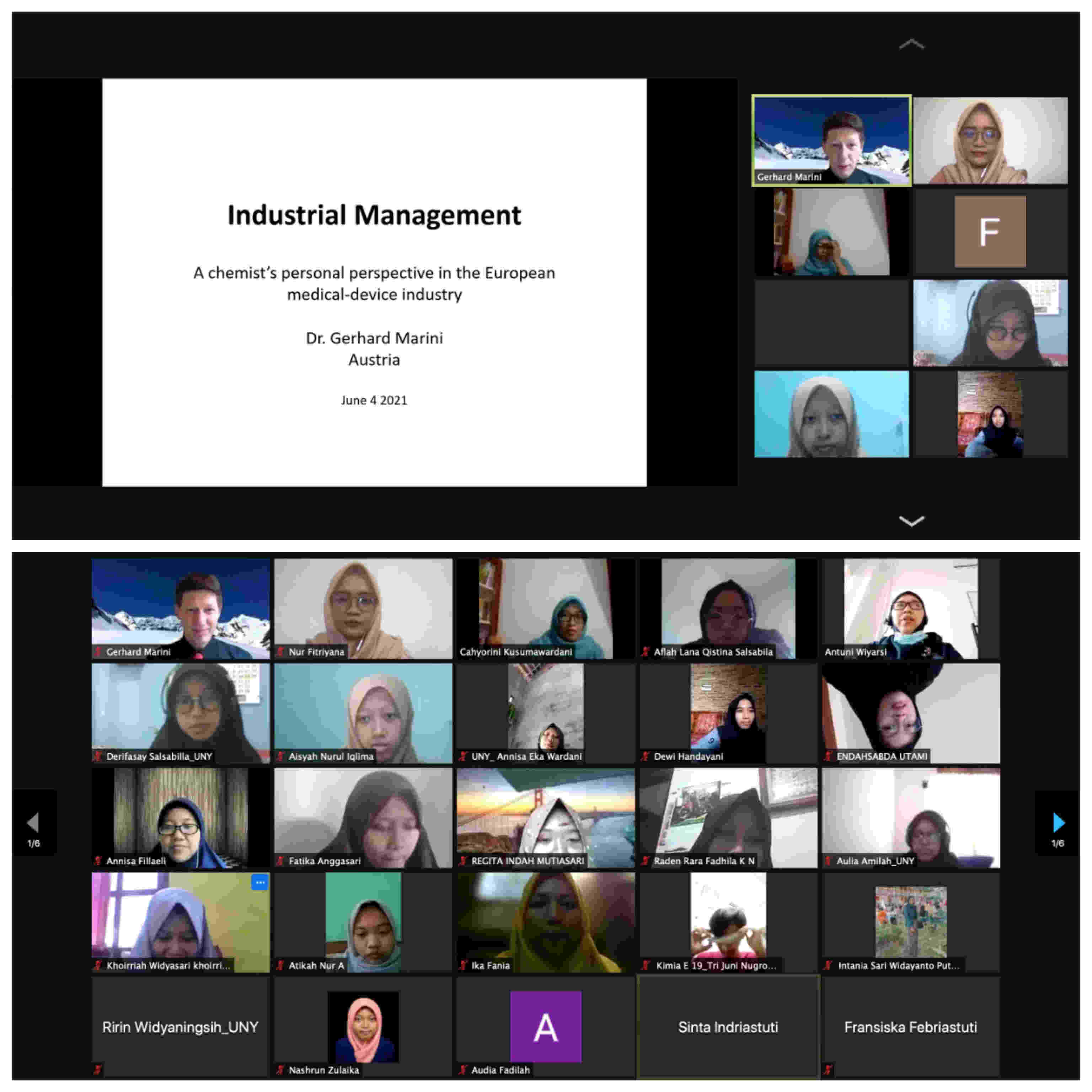You are here
Guest Lecture by Dr.rer.nat Gerhard Marini: Austrian Med-El Practicioner

On Friday, June 4, 2021, the Chemistry Study Program held a guest lecture by practitioners of Med-El, Inssbruck, Tyrol, Austria by presenting Dr.rer.nat Gerhard Marini who is the Operations Manager of Biosocrates. Dr.rer.nat Gerhard Marini earned his PhD from the University of Innsbruck in Chemistry. Prior to working as a practitioner at Med-El, Dr. Marini has many experiences including being a member of the standards committee at the DIN Deutsches Institut für Normung e. V., data analyst at Biocrates, engineer at Pöyry, and consultant at TiKOM. Dr. Marini has worked as Operations Manager at Med-El for over 14 years. Med-El is located in Austria, Europe and has been manufacturing hearing implants for over 30 years. To date, Med-El has more than 2,200 employees from approximately 75 countries, 30 locations worldwide, and people who have used implants in 125 countries.
This guest lecture was conducted in connection with the implementation of Industrial Management lectures at the Chemistry Study Program, FMIPA, UNY with the lecturer Dr. Cahyorini Kusumawardani, Isti Yunita, Ph.D., and Annisa Fillaeli, M.Sc. The topic presented by Dr.rer.nat Gerhard Marini is related to "The Personal Perspective of a Chemist in the European Medical Device Industry". Lecture activities were carried out online through Zoom Cloud Meetings and were attended by 166 participants both from lecturers and students of Chemistry study program.
According to Dr. Marini, because of his extensive knowledge, chemists are highly sought after in every industry related to chemicals including energy, environment, protection, food, agriculture, cosmetics, textiles, toys, consumer electronics, automotive, as well as pharmaceuticals and medical devices. Dr. Marini provides some insight into working as a chemist in the medical device industry from her more than 15 years of experience in this field. He conveyed about what implantable medical devices are and examples of the work of Chemists who can play a role in materials management and process management. He said that a medical device is any instrument or software used on humans for diagnosis, prevention, monitoring, treatment or reduction/compensation of disease, injury or disability and which does not achieve its intended primary action by pharmacological, immunological or metabolic means. For example: pacemakers, hip implants, and cochlear implants.
Cochlear implants are chemically related. In this case, the job of the chemist in materials management must be to ensure that the cochlear implant functions as intended, ensure that the implant is workable, non-toxic/biocompatible, and remains stable in the body for at least 10 years. As for process management, chemists should know about injection molding, gluing, sintering, melting, bending, laser-welding, anodizing, coating, etc. They also need to know the process for cleaning and sterilizing cochlear implants. Through this lecture, it is hoped that chemistry study program students can add insight and description of how the job description is as an operational manager who handles material and process management in the implant medical device industry.
Information System
Kontak Kami
Program Studi Kimia
FMIPA Universitas Negeri Yogyakarta
Kampus Karangmalang Yogyakarta 55281
Telp. (0274)586168 Pes. 115
Email: kimia@uny.ac.id atau s1kimia@uny.ac.id
Copyright © 2024,
